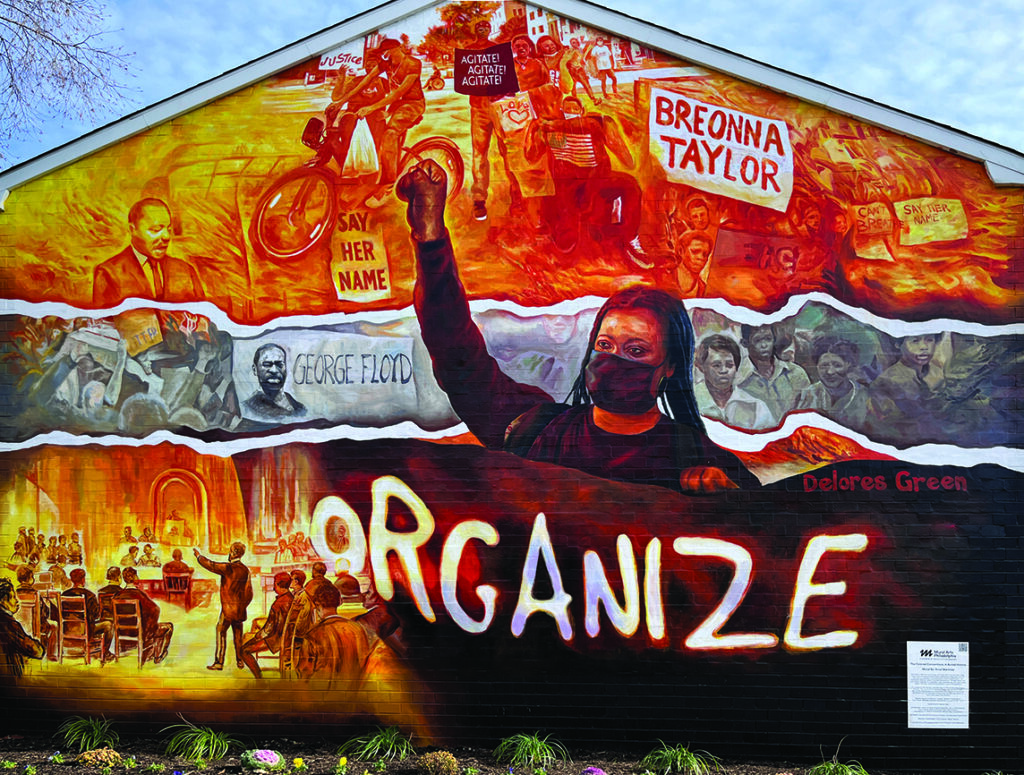Defend African American Studies

Black history is under attack — predictably by the right, and by the acquiescence of the College Board, a billion-dollar “non-profit” business. This is yet another example of the erasure of Black people and knowledge from the curriculum.
Earlier this year, the College Board released changes to its Advanced Placement (AP) African American Studies course that rid it of essential texts, scholars, and topics — including the very mention of structural racism. The shifts came in response to the Florida Department of Education and Governor Ron DeSantis’s denunciation of the course.
The Florida Department of Education originally objected to six themes in the AP course: Black Queer Studies, Intersectionality, Movement for Black Lives, Black Feminist Literary Thought, the Reparations Movement, and Black Struggle in the 21st Century. DeSantis ridiculed the curriculum’s inclusion of queer theory: “Now, who would say that an important part of Black history is queer theory? That is somebody pushing an agenda on our kids.”
This “agenda” is simply the truth. The lives and experiences of Black queer activists, organizers, and artists like Lorraine Hansberry, James Baldwin, Pauli Murray, Bessie Smith, Bayard Rustin, Marsha P. Johnson, and so many others, help us to critically examine an intersectional approach to history that reveals how overlapping systems of power oppress Black people, women, LGBTQ+ people, folks with disabilities, and more.
Weeks later, the College Board imitated DeSantis’s position in their release of the final course framework. They erased critical theorists and organizers such as bell hooks, Kimberlé Crenshaw, and Angela Davis, and made Black Lives Matter, reparations, and mass incarceration optional areas of study. Understanding these present-day issues allows students to understand root causes and critique what’s currently happening. Making topics optional communicates that they are relegated to the margins, rather than key topics that shape Black people’s lives in the United States.
The College Board continues to act in lockstep with its racist roots. It was built on a foundation of maintaining and reinforcing white supremacy. Eugenicist Carl Campbell Brigham created the SAT. AP exams were established during the Cold War 1950s to address policymakers’ fear that U.S. students were not adequately prepared for college and were lagging behind Soviet students. AP classes were offered to mostly white, affluent students because policymakers believed the new program could help them defeat the Soviet Union. As David Dudley, then Director of AP wrote in 1958: “The basic philosophy of the Advanced Placement Program is simply that all students are not created equal.”
So, what is the right so afraid of?
DeSantis and Florida education officials know that when students learn from history, they demand and organize for a more just future. African American Studies provides strategies, tools, and examples of multiracial solidarity, strategic organizing, joy, wellness, and community care.
African American Studies grew out of the Black Power Movement in the 1960s, particularly students organizing strikes to protest universities whitewashing curricula. Black students engaged in political education and built critical consciousness for new types of activism. African American Studies has always pushed back on indoctrination by equipping Black people with critical questions to disrupt structures and systems of oppression. Students and teachers have long organized for African American Studies in school. Philadelphia protests in 1967 led to the city becoming the first to make African American history a requirement.
If African American Studies is included as an AP class, ridding the course of foundational elements corrupts its essence. We applaud efforts by scholars in the field, such as the African American Policy Forum, as well as teachers of African American history in Philadelphia, to try to restore the integrity of AP African American Studies, including the call for the College Board to make materials available to students in states that have passed anti-CRT legislation. These anti-racist educators are telling the College Board that African American Studies is grounded in decades of struggle and scholarship, and must remain true to its original mission: studying the racist past and present to build an anti-racist future.
In their open letter, Philadelphia teachers quoted UCLA professor, Robin D.G. Kelley, one of the esteemed scholars scrubbed from the College Board’s AP class: “Black studies is supposed to be an epistemological break, that’s why it’s dangerous — because it actually wants to try to figure out a way to make this country not racist.”
We hope that the College Board’s acquiescence will encourage educators to question the oversized power this corporation has over U.S. high schools. The College Board’s AP classes exacerbate tracking in schools across the country. Tracking maintains segregation by designating certain paths for students, based largely on race and class. The incentive for taking AP classes is bolstered by the massive expansion of college debt. The carrot of offering students free college credit has led many progressives to fight for better access to AP courses for students of color instead of organizing against them. But being “included” in or “added” to unjust practices like tracking and standardized testing does not create justice. There’s more that can be done than trying to gain access to a broken program guarded by political and corporate greed.
Students should have access to African American Studies and the opportunity to earn college credit. But they also should have access to African American Studies that is radical and true to its roots. We don’t have to wait for the perfect framework. We can implement and integrate African American Studies without a billion-dollar corporation. And we can build alternative access to free college credit, through dual enrollment, which should be made available to all students — and has been enacted in schools across the country.
Because the College Board continues to exercise an enormous influence, the struggle to restore the removed content from AP African American Studies is an important part of the larger fight for racial justice. Rethinking Schools expresses solidarity with all those calling on the College Board to reinstate the censored topics. We are in solidarity with students in Florida who are suing DeSantis, and students across the country defying curricular repression, organizing walk-outs and demonstrations. We are in solidarity with Black scholars and educators who were at the helm of creating and consulting on this course, and comrades such as Black Lives Matter at School, calling for Black history and ethnic studies to be mandated in K–12 curriculum. And we are in solidarity with teachers who are leveraging this course to teach essential topics in African American Studies.
Ultimately, we want schools that are not tracked, a curriculum that is not standardized or sanitized, and a space where creativity and critical thinking are cultivated. Curricular decision-making power should be in the hands of educators and communities committed to teaching the truth. Teaching for Black lives requires that we abolish systems like tracking and standardized testing that punish and limit students. The road to abolition will be paved by those fighting against attempts to suppress the truth with a vision for schools as laboratories for justice.
Black history and ethnic studies provide a blueprint. These courses prompt students to engage with questions about why society operates as it does. They lay bare the myth of American exceptionalism. We need to demand a curriculum that asks students to wrestle with the roots of inequality and injustice, reflects on alternatives, and explores social movements, past and present, that seek to make the world more just. Young people deserve schools that center joy, culture, beauty, and humanity. Teaching an honest history and critically examining the present ignites possibilities about new futures we cannot yet fathom.

